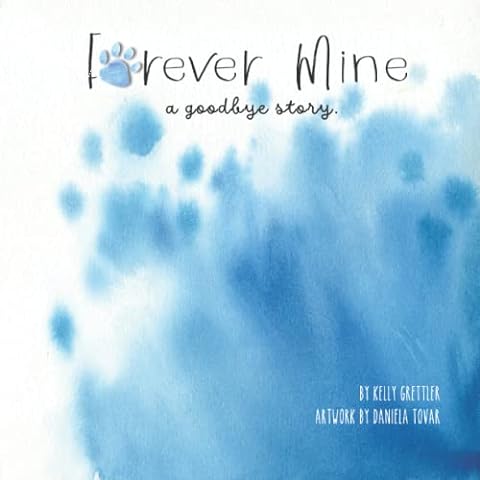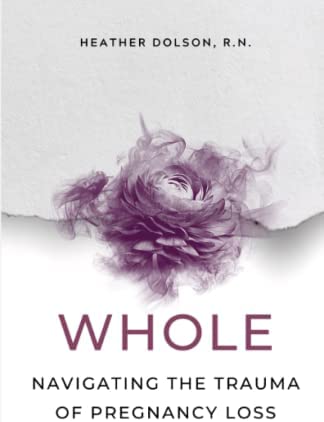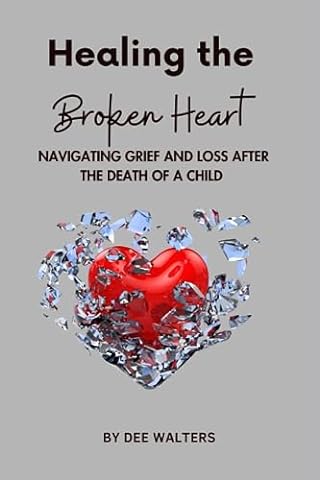
Amazon Prime Free Trial
FREE Delivery is available to Prime members. To join, select "Try Amazon Prime and start saving today with FREE Delivery" below the Add to Cart button and confirm your Prime free trial.
Amazon Prime members enjoy:- Cardmembers earn 5% Back at Amazon.com with a Prime Credit Card.
- Unlimited FREE Prime delivery
- Streaming of thousands of movies and TV shows with limited ads on Prime Video.
- A Kindle book to borrow for free each month - with no due dates
- Listen to over 2 million songs and hundreds of playlists
Important: Your credit card will NOT be charged when you start your free trial or if you cancel during the trial period. If you're happy with Amazon Prime, do nothing. At the end of the free trial, your membership will automatically upgrade to a monthly membership.
Buy new:
$11.95$11.95
Ships from: Amazon.com Sold by: Amazon.com
Save with Used - Good
$11.35$11.35
Ships from: Amazon Sold by: Zoom Books Company
0.79 mi | San Francisco 94103

Download the free Kindle app and start reading Kindle books instantly on your smartphone, tablet, or computer - no Kindle device required.
Read instantly on your browser with Kindle for Web.
Using your mobile phone camera - scan the code below and download the Kindle app.

Healing Your Grieving Heart After Miscarriage: 100 Practical Ideas for Parents and Families (The 100 Ideas Series) Paperback – April 1, 2015
Purchase options and add-ons
- Print length128 pages
- LanguageEnglish
- PublisherCompanion Press
- Publication dateApril 1, 2015
- Dimensions5.5 x 0.29 x 8.5 inches
- ISBN-101617222186
- ISBN-13978-1617222184
The Amazon Book Review
Book recommendations, author interviews, editors' picks, and more. Read it now.
Frequently bought together

Products related to this item
Editorial Reviews
About the Author
Excerpt. © Reprinted by permission. All rights reserved.
Healing Your Grieving Heart After Miscarriage
100 Practical Ideas for Parents and Families
By Alan D. WolfeltCenter for Loss and Life Transition
Copyright © 2015 Alan D. Wolfelt, Ph.D.All rights reserved.
ISBN: 978-1-61722-218-4
Contents
Introduction,100 Ideas,
1. Embrace your need and right to grieve,
2. Mourn your loss,
3. Use the words that feel right to you,
4. Understand the six needs of mourning: Need 1. Acknowledge the reality of this loss,
5. Understand the six needs of mourning: Need 2. Embrace the pain of the loss,
6. Understand the six needs of mourning: Need 3. Remember what happened,
7. Understand the six needs of mourning: Need 4. Develop a new self-identity,
8. Understand the six needs of mourning: Need 5. Search for meaning,
9. Understand the six needs of mourning: Need 6. Receive ongoing support from others,
10. Allow for numbness,
11. Consider yourself in emotional intensive care,
12. Know there is no order to grief,
13. Keep a journal,
14. Share the experience of the miscarriage itself,
15. Find ways to make peace with the disposition,
16. Be compassionate with your partner,
17. Be loving toward your children,
18. If you've had infertility problems, know that this will complicate your grief,
19. If you've had more than one miscarriage, seek extra support,
20. If you or your partner were ambivalent about the pregnancy, know that this can complicate your grief,
21. Cry,
22. Designate a time to mourn each day,
23. Understand when others say, "I'm sorry",
24. Take time off work,
25. If you feel guilty, find ways to express it,
26. If you feel angry, find ways to express it,
27. If you feel envious, find ways to express it,
28. If you feel afraid, find ways to express it,
29. If you feel disappointed, find ways to express it,
30. Just be,
31. Open your heart,
32. Remember: One day at a time,
33. Understand what it means to be traumatized,
34. Make an inventory of survival strategies,
35. Relinquish control,
36. Be patient,
37. Let go of destructive misconceptions about grief and mourning,
38. Wear a symbol of mourning,
39. Know there are no bad days, only "necessary" days,
40. Reach out to others who truly understand your pain,
41. Believe in your capacity to heal,
42. Empower yourself with information,
43. Move toward your grief, not away from it,
44. Give attention to your relationship,
45. Expect to have whirlwind emotions,
46. Talk about grief and mourning,
47. Turn to ceremony,
48. Acknowledge the multitude of losses,
49. Watch for warning signs,
50. Identify someone you can count on,
51. Set boundaries,
52. Prepare to answer uncomfortable questions,
53. Share your story,
54. Talk to your baby,
55. Ignore hurtful advice,
56. Take care of you,
57. Make sleep a priority,
58. Honor what your body needs,
59. Reach out and touch,
60. Trust that you're not going crazy,
61. If you're having dreams about the baby, share them with someone close to you,
62. Create a personal sanctuary just for you,
63. Trust in yourself,
64. Let go of tension with a sigh,
65. Protect yourself from negativity,
66. Learn something new,
67. Find help online,
68. Remember, even rocks crumble with too much weight,
69. Find the words in music,
70. Find ways to honor this baby,
71. Volunteer,
72. Tell someone you love her,
73. Acknowledge when you are feeling lost,
74. Allow for unfinished business,
75. Simplify,
76. Prepare yourself for the holidays,
77. Demonstrate your faith,
78. Ground your thoughts with a touchstone,
79. Communicate with your partner about your sex life,
80. Write a letter to your higher power,
81. Don't be caught off-guard by griefbursts,
82. Expect grief at milestones,
83. Understand the concept of reconciliation,
84. Get away from it all,
85. Think about what comes next,
86. Move your grief to gratitude with yoga,
87. Bring in more light,
88. Laugh,
89. Take in the sun,
90. Express your grief through art,
91. Contemplate the universe,
92. Express your child-like self,
93. When and if either of you is ready, talk with your partner about trying again,
94. Reunite and reconnect,
95. Envision,
96. Reconfigure your life,
97. Be purposeful in everything you do,
98. Share what you've learned,
99. Say goodbye,
100. Embrace your transformation,
A Final Word,
Resources,
The Mourner's Code,
CHAPTER 1
1.
EMBRACE YOUR NEED AND RIGHT TO GRIEVE
"So it's true, when all is said and done, grief is the price we pay for love."
— E. A. Bucchianeri
No matter what others might wrong-headedly say or imply about the supposed relative inconsequentiality of miscarriage, you have suffered a significant loss. Of course you are grieving! Of course you have a need and right to mourn!
Miscarriage and ectopic pregnancy are not negligible losses. Your loss is exactly as profound as it feels to you inside. Your reality is real.
Still, not everyone whose life has been touched by miscarriage feels the same. Each person's sense of loss and grief is as unique as a snowflake. Your thoughts and feelings will not be the same as your partner's or others grieving the loss of this baby. And you will find that other families who have experienced miscarriage will not necessarily share your precise thoughts and feelings. That's OK. There is no right or wrong. Everyone is entitled to their own unique grief and mourning after a loss.
Affirm your need and right to mourn. If other people act as if nothing's happened or judge your grief, try to understand that they have been conditioned by a culture that minimizes loss in general and miscarriage in particular. Educate them. And turn to others who are able to empathize with your loss.
CARPE DIEM
Today, tell someone about what this miscarriage has meant to you.
2.
MOURN YOUR LOSS
"There is no foot so small that it cannot leave an imprint on this world."
— Unknown
Everyone grieves when we lose something significant, but if we are to heal our grief, we must also mourn.
Your body's and mind's natural response to miscarriage is to grieve. Grief is the constellation of internal thoughts and feelings you have when you lose someone you love and value.
Your grief is what you may feel as a weight in your chest, a churning in your stomach, an ache in your arms, memories of your miscarriage experience, or bittersweet thoughts of a hoped-for future that will never be.
Mourning, on the other hand, is the outward expression of your grief. It is an active process. Mourning is releasing your grief, be it through crying, writing your thoughts in a journal, creating art that represents your feelings of grief, talking to others about what happened, or participating in a support group.
Many of the ideas in this book are intended to help you mourn your loss of this baby. These ideas have been written to help you express your grief outside of yourself so that over time your heart can heal.
CARPE DIEM
Check in with yourself and ask, "Am I allowing myself to actively mourn this loss, or am I holding my grief inside?"
3.
USE THE WORDS THAT FEEL RIGHT TO YOU
"Better than a thousand hollow words is one word that brings peace."
— Buddha
With miscarriage, especially losses in the early weeks of pregnancy, finding the right words to describe your loss can be hard.
Do you say that you lost a pregnancy? Do you say that your baby died? Do you simply say that you miscarried?
Many families affected by miscarriage are hurt when they hear doctors use terms like "spontaneous abortion," "products of conception," and "fetal demise." While these words may be medically accurate, they are not compassionate nor do they capture families' profound feelings of love and loss. What's more, the word "miscarriage" may seem to lay blame on the mother for not carrying her child well enough. I actually think that our very lexicon of pregnancy loss needs an overhaul.
Empower yourself by using the words that best capture your unique thoughts and feelings about your loss. If it feels right to you to use the word "baby," then by all means, do so — regardless of how far along you were in your pregnancy.
Similarly, work to find words to describe your emotions. When someone asks, "How are you?", perhaps you can honestly say, "I've been feeling really (sad, angry, lonely, lost, or heartbroken)." Or, "This week was really hard for me because ..." Saying "I'm fine" or "I'm doing OK" if you're not doesn't serve you or the listener very well.
Also consider naming the baby you lost. We name people because they are unique, once-in-forever individuals. If you feel this way about the baby who was miscarried, then by all means pick a name so that you have a way to talk about him or her as time passes. Gender-neutral names such as Jessie or Riley might be appropriate, or you could choose a simple term of endearment such as "pumpkin" or "sweet pea."
CARPE DIEM
Talk to your partner or a close friend or family member about the language you want to use (and just as important, don't want to use) in talking about your loss.
4.
UNDERSTAND THE SIX NEEDS OF MOURNING
Need 1. Acknowledge the reality of this loss
"Seeing is always an act of courage."
— Marty Rubin
Your developing baby has died. This is a difficult reality to accept. Your mind and heart may try to push this reality away at first. In the beginning, some degree of denial is normal and necessary for your survival. Yet gently, slowly, and patiently, over time, you must begin to embrace this reality. Little by little. Hour by hour. You will come to integrate the reality in doses as you are ready.
Acknowledging the full reality of your loss will happen as time passes. Over the coming months and years there will be many experiences that will remind you of this reality. These are necessary experiences for you to have, as painful as they may be.
You will first acknowledge the reality of your loss with your head, and then, eventually, you will begin to acknowledge the reality with your heart and soul.
CARPE DIEM
Tell someone about your miscarriage today.
5.
UNDERSTAND THE SIX NEEDS OF MOURNING
Need 2. Embrace the pain of the loss
"We must embrace pain and burn it as fuel for our journey."
— Kenji Miyazawa
Embracing pain sounds counterintuitive. In fact, you may be actively looking for ways to avoid or prevent yourself from feeling the pain of your miscarriage day in and day out. It is easier to avoid, repress, or push away the pain of grief than it is to confront it and feel through it.
Yet confronting and allowing your pain to surface is what will help you reconcile and integrate your loss. As I often say, you must feel it to heal it.
In the early days after your miscarriage, your pain may seem ever -present, as if it doesn't let up for even a moment. Your every thought and feeling may seem to be centered on your loss. While you do need to experience your pain, you can only do so in doses. Take breaks. It's healthy to seek distractions and allow yourself bits of pleasure every day. Go for a walk, watch TV, or talk to friends about something other than the loss.
CARPE DIEM
Dedicate 15 minutes right now to thinking about and feeling your loss. If you don't want to be alone for this, reach out to someone who doesn't try to stop your tears or tell you not to hurt. Sit with this person as you express how painful this experience is for you.
6.
UNDERSTAND THE SIX NEEDS OF MOURNING
Need 3. Remember what happened
"Memory is the diary that we all carry about with us."
— Oscar Wilde
You experienced a pregnancy and then the loss of a pregnancy. Depending on the number of weeks' gestation and the type of miscarriage, you may or may not have seen the baby on ultrasound (or for later miscarriages, after delivery), listened to the heartbeat, experienced pregnancy symptoms, or felt him or her move inside you. But regardless, from the moment you knew you were pregnant, your life changed. It changed again after your miscarriage.
Whenever we experience significant loss in life, we hold its memory in our hearts. Loss changes us. And remembering loss is a form of honoring our lives, our reality, and what made us who we are today. To strive not to remember, on the other hand, is to dishonor our lives and our reality.
If those around you try to take memories away from you in a misguided attempt to spare you from more pain, let them know that this is not helpful. It is good for you to talk about the pregnancy and miscarriage. It is good to display ultrasound pictures or cards that people may have sent you, show people the nursery or baby items you'd purchased, and share the hopes and dreams you had for this baby's future.
Remind yourself that it is remembering the past that makes hoping for the future possible.
CARPE DIEM
If you have mementos from this pregnancy, such as a pregnancy test, a newspaper printed on the day of the miscarriage, ultrasound pictures, photos taken of you when you were pregnant, or a list of names you were considering, gather everything up and place it in a special memory box that you can go through whenever you're thinking about this baby.
7.
UNDERSTAND THE SIX NEEDS OF MOURNING
Need 4. Develop a new self-identity
"An identity would seem to be arrived at by the way in which the person faces and uses his experience."
— James Baldwin
A big part of our self-identities are formed by the roles we play in life. You were pregnant, about to become a new mother or father. But you didn't reach parenthood, at least not for this baby. How does this affect your self-identity? Your partner, the baby's grandparents, and the baby's siblings (if there are any) will also struggle with how they think of themselves and the family in the aftermath of the miscarriage.
Even if you have other children, this baby's death will probably change your self-perception in many ways.
In the search to better understand why their loss occurred, many parents will try to find blame with themselves. Rarely is a miscarriage related to something the mother or father has done wrong. Instead, the feelings of blame often stem from the fact that our sense of self is always, always affected by significant loss — especially when an immediate family member dies.
In the months and years to come, if you mourn fully and honestly, you will find ways to accommodate this loss into your sense of self and family.
CARPE DIEM
Work on articulating how this loss is changing you. Complete the following sentences with the words that feel right to you. I used to be ____. Since the miscarriage, I am ____. When I used to think about ____, I felt ____. Today, when I think about ____, I feel ____. Keeping writing as long as you want.
8.
UNDERSTAND THE SIX NEEDS OF MOURNING
Need 5. Search for meaning
"Here is the world. Beautiful and terrible things will happen. Don't be afraid."
— Frederick Buechner
When a baby dies, it feels so unnatural and out of order. We question the meaning and purpose of this sad turn of events. No question is too small or too strange. All of them are important questions to ask. Why did this child die before me? Why does a baby die before he is even born? What is the point in that?
"Why" questions may surface uncontrollably and often precede "how" questions. This mental quandary that occurs with grief can feel consuming at times. You might be asking, "Why did this happen? Why me? How will my life be different? How will it be the same?"
You will likely question your philosophy of life and explore what really matters to you as you work on this mourning need.
Remember that having faith or spirituality does not eliminate your need to mourn. Even if you believe in an afterlife of some kind, you and this child have still lost precious time together here on Earth. It's normal to feel dumbfounded and angry at God or whatever source within the universe you may believe has permitted this to happen.
Ultimately, you may decide that there is no answer to the question "Why did this happen?" For some parents the only answer is this: Miscarriage does not make sense and it never will.
CARPE DIEM
Start a list of "why" questions that have surfaced for you since your miscarriage. Find a friend or counselor who will explore (not tritely answer) these questions with you and help you arrive at your own answers over time. Encourage your partner to do the same.
9.
UNDERSTAND THE SIX NEEDS OF MOURNING
Need 6. Receive ongoing support from others
"You must be at the end of your rope. I felt a tug."
— Unknown
As mourners we need the love and understanding of others as we move through our grief toward healing.
Don't feel ashamed by your heightened dependence on others right now. If your miscarriage was recent, you may feel the need to be around people all the time. You might feel compelled to talk about the pregnancy often. You may need help with day-to-day tasks that you have no energy for right now, such as getting meals together, doing laundry, or completing paperwork. Rather than feel bad about this, take comfort in the knowledge that others care about you.
Unfortunately, our society places too much value on "carrying on" and "doing well" after a loss. So, mourners are often abandoned by their friends and family soon after a loss. This is especially true after miscarriage because many don't appreciate that it is a significant and painful loss. And sometimes family and friends avoid encounters because they don't know what to say.
(Continues...)Excerpted from Healing Your Grieving Heart After Miscarriage by Alan D. Wolfelt. Copyright © 2015 Alan D. Wolfelt, Ph.D.. Excerpted by permission of Center for Loss and Life Transition.
All rights reserved. No part of this excerpt may be reproduced or reprinted without permission in writing from the publisher.
Excerpts are provided by Dial-A-Book Inc. solely for the personal use of visitors to this web site.
Product details
- Publisher : Companion Press; None edition (April 1, 2015)
- Language : English
- Paperback : 128 pages
- ISBN-10 : 1617222186
- ISBN-13 : 978-1617222184
- Item Weight : 6.4 ounces
- Dimensions : 5.5 x 0.29 x 8.5 inches
- Best Sellers Rank: #945,692 in Books (See Top 100 in Books)
- #903 in Dementia
- #2,512 in Grief & Bereavement
- #2,560 in Love & Loss
- Customer Reviews:
About the author

Dr. Alan D. Wolfelt is a noted author, educator, and grief counselor. Recipient of the Association for Death Education and Counseling's Death Educator Award, he serves as the Director of the Center for Loss and Life Transition in Fort Collins, Colorado. He is also a faculty member of the University of Colorado Medical School's Department of Family Medicine.
In addition to presenting dozens of keynotes and workshops across North America each year, Dr. Wolfelt facilitates four-day training seminars for bereavement caregivers in Fort Collins. Dr. Wolfelt is a popular media resource who regularly provides his expertise to many top-tier television shows, newspapers, and magazines.
He is the author of more than fifty bestselling book on grief and loss, including "Loving From the Outside in, Mourning From the Inside Out;" "Understanding Your Grief;""The Journey Through Grief;""Companioning the Bereaved:A Soulful Guide for Caregivers;""Healing a Spouse's Grieving Heart;""Companioning the Grieving Child;""Healing a Parent's Grieving Heart;" and "Creating Meaningful Funeral Ceremonies."
Dr. Wolfelt and his wife, Sue, a family physician, are parents to three children. They live in the foothills of the beautiful Rocky Mountains next door to the Center for Loss and Life Transition.
Products related to this item
Customer reviews
- 5 star4 star3 star2 star1 star5 star100%0%0%0%0%100%
- 5 star4 star3 star2 star1 star4 star100%0%0%0%0%0%
- 5 star4 star3 star2 star1 star3 star100%0%0%0%0%0%
- 5 star4 star3 star2 star1 star2 star100%0%0%0%0%0%
- 5 star4 star3 star2 star1 star1 star100%0%0%0%0%0%
Customer Reviews, including Product Star Ratings help customers to learn more about the product and decide whether it is the right product for them.
To calculate the overall star rating and percentage breakdown by star, we don’t use a simple average. Instead, our system considers things like how recent a review is and if the reviewer bought the item on Amazon. It also analyzed reviews to verify trustworthiness.
Learn more how customers reviews work on AmazonTop reviews from other countries
I found this book to be both comforting and enlightening. It helped me to recognise that many of the feelings i had were completely normal.
At times, miscarriage can be very isolating and you feel like you are the only person who is going through this heartache. You are not alone.


























